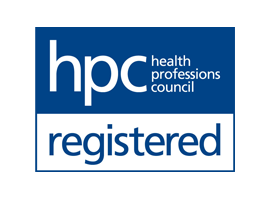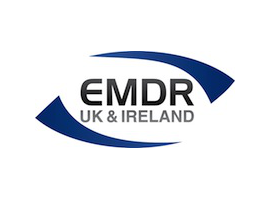Therapy Services - FAQ
Can I bring a friend or relative to therapy with me?
Ideally, therapy should be on a one to one basis. However, you can, if you really need to, bring someone with you, provided you are happy that they will hear everything that you need to talk about, and you can trust them – remember sometimes therapy is required to help us deal with personal or family relationships, and another friend or family member may inadvertently let someone else in your friends or family circle know that they are the subject of your therapy!
Whilst a chaperone is welcomed, they must not seek to interfere with the therapy, or provide answers on your behalf, and if I think that their presence is preventing you from fully benefiting from the therapy, I will ask you not to bring them again.
Is there parking at your clinic?
Yes, there is usually sufficient parking on the drive for your car.
How long will the therapy session be?
This will be dependent on the nature of the therapy and the condition that I am treating. However, typically a session will last between forty-five minutes and fifty minutes.
Remember, your first session may take a little longer as I will also need to spend some time gathering information from you.
Do you use any associate Psychologists, or will I see you?
No, I do not use any associates, so you will see me. However, if it is immediately obvious that I will not be able to treat you, or if this becomes apparent at any time during your therapy, I may, if appropriate, offer you the details of an alternative therapist, although they will not be associated to Psychology Solutions in any way.
Are there waiting room facilities at your clinic?
No, I am sorry, I do not have a waiting room, so anyone accompanying you, who is not to be present during therapy will need to wait for you outside of the clinic.
Is the venue wheelchair accessible?
My clinic is on the ground floor and the entrance requires the negotiation of a small threshold step.
How and when do I pay for my sessions?
Your first telephone consultation will be free of charge. The cost of all subsequent treatment plans will be discussed and agreed with you thereafter. Once set, the price of your treatment sessions will not ordinarily be changed, unless there is a general increase in my fees, in which case you will be advised of the increase with a minimum of three months’ notice.
What will my treatment be?
It is impossible to make such a determination in a generalised manner, as everyone’s needs are different. Once a clear idea of your situation and difficulties being experienced has been established, we will discuss your options for treatment and an outline plan will be drawn up, with goals and aims specifically tailored to your situation.
How do I go about arranging an initial consultation?
I generally like to have direct contact with the person who will be attending the treatment sessions before offering an appointment. This enables us to discuss your situation, to determine whether it is likely that I can help you, and whether you want to come and see me.
If you would like to discuss this further with me, or book a first appointment, please contact me on 020 8786 9100 or 07958 651322, email info@doctorchurch.com or make an enquiry using the Contact Me section of this website.
How long will I have to wait for an appointment?
I aim to offer you an initial telephone consultation within one week of your initial contact and a further, therapy-based appointment within a week of that consultation. However, at extremely busy times or periods of annual leave, these timescales will become flexible.
Can I see you outside of office hours?
Yes. I offer some weekday, as well as evenings and weekend appointments.
What can I expect during first appointment or assessment?
The first session is a chance for you and me to get to know each other better, it is also an opportunity for you to get a feel for how I work and to see if you feel comfortable talking to me, and for me to gauge whether I can be of help to you.
I know that meeting for the first time can be anxiety provoking and I am experienced with helping people manage these feelings.
During this first face to face session, I seek to gain a deeper understanding of your current difficulties, your hopes for therapy sessions and what your ultimate aims are. At the end of our first session, I will make some recommendations and we will think about a way forward. Please note that attending an initial assessment does not commit you to ongoing therapy sessions.
What happens if we agree to work together?
We will discuss your goals for therapy and how we will work together to help you achieve them. Where busy diaries will allow, we will set a regular time and day for future sessions, and where this is not possible, we will at least set a time and date for our next session.
I strongly believe that attending therapy less frequently during the first few weeks, can hinder your potential progress, and may extend the number of sessions that you require before you achieve your therapy goals. However, I am happy to work in a flexible way to accommodate your attendance requirements if possible.
How long will my therapy take to work?
One of the advantages of accessing private therapy is that your therapy duration is based solely on your needs and not external factors, such as major organisational conflicts. The aim of therapy is to transfer knowledge and skills from me to you and eventually to make me, as your therapist redundant.
To reach this position, it will usually take no more than six to twenty sessions of CBT. However, generalised counselling therapy can be a more fluid and open-ended type of therapy with, after the first few sessions, attendance required and dictated much more to meet your needs, or as a response to a new or re-ignited life event, or other life stressor.
Does therapy work?
There is extensive research evidence about the effectiveness of therapy for a wide variety of difficulties. I deliver evidence based psychological treatments and consider the NICE guidelines when making recommendations for the approach we will use and the possible length of treatment.
Are therapy sessions confidential?
Yes. Nothing that is discussed in my Consulting Room between you and I will be revealed or discussed with any unauthorised third party.
I will, with your consent or instruction, reveal information to a third party, such as your GP, or, in situations pertaining to your vital interests, or the vital interests of another, without your consent, i.e. if I became seriously and genuinely concerned about harm coming to you or others around you, or as I am required to do to comply with all relevant laws and regulatory requirements as they apply to me.
I am fully compliant with the requirements of the General Data Protection Regulations and registered with the Information Commissioner’s Officer under number Z1839266.
My Privacy Notice relating to the use of this website can be found at the foot of every website page, and upon request, I would be happy to share with you my Data Protection Policy. In fact, this will be provided to you at the beginning of our first session, and I will ask you to sign a data processing consent form, which will allow me to collect, process and store personal, and special categories of personal data from you, that I will require in order to offer and provide therapy to you.
What if there is a serious emergency between our sessions?
I am afraid that I do not offer a crisis response therapy service, although in the event of an incident impacting your life in between our planned session dates, if you contact me I will of course make every effort to make an appointment available to you at my earliest opportunity.
In the unlikely event that I cannot help within an acceptable timeframe, please immediately contact your GP or attend your local Accident & Emergency Department. Alternatively, you could contact the Samaritans on 116 123.
What if something bothers me during therapy?
It is not uncommon for people to sometimes struggle with difficult thoughts and feelings during a therapy session, or for such feelings to emerge later in the day or week following therapy. I would encourage my patients to talk to me about these thoughts or feelings, and give me any feedback, at any time, about anything that concerns them or that they are unsure about. Pleased be assured that your therapy practices, no matter how essential to your treatment, will never force you to do things that you do not want to, or to discuss matters that you do not wish to discuss. However, you should be aware that in such circumstances, treatment may not conclude within the initially predicted timescales.
Are you able to provide me with reports?
The production of reports for your GP, Psychiatrist, other healthcare providers or private health care insurers, will incur additional fees to those that I would have discussed with you in relation to your actual therapy, or they will be stand-alone fees if you do not wish to utilise my therapy services, but instead wish for me to undertake an assessment of your psychological condition, for the purposes of a legal/compensation claim for example.
Please be aware that I am regularly used as an Expert Witness for the courts, providing written assessment reports following the likes of an insurance claim. It is possible, therefore, that your request may cause me a conflict of interest, and as such I would have to respectfully decline to assess you and provide a reflective report. However, upon request I will be happy to discuss with you whether I am able to provide the nature of the report that you require, and the fees associated with such, which will largely be determined by the amount of time it will take for me to prepare the required report.





